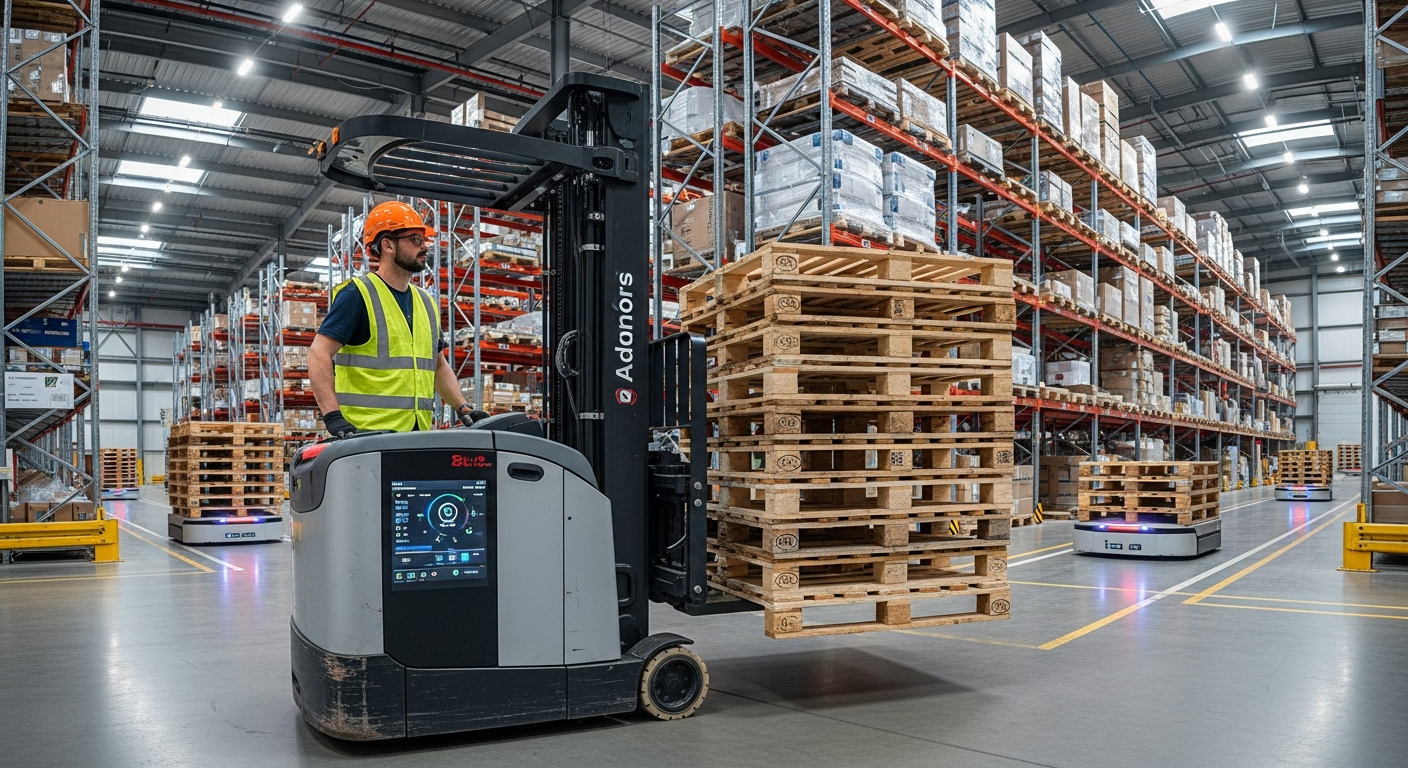Warehouse Jobs – Why They Are Open to Everyone
The warehouse industry serves as a crucial backbone for retail, manufacturing, and logistics operations across America. With the rise of e-commerce, these facilities have expanded significantly, creating substantial employment opportunities for workers from diverse backgrounds and experience levels. Warehouse positions often stand out in the job market for their accessibility, making them valuable entry points for those new to the workforce, individuals seeking career changes, or people facing barriers to employment in other sectors.

Why Prior Experience Is Often Not Required for Warehouse Positions
Warehouse employers frequently prioritize reliability, work ethic, and willingness to learn over previous industry experience. Many distribution centers and fulfillment facilities design their hiring processes to accommodate newcomers to the industry. Physical abilities such as lifting capacity, stamina, and manual dexterity often take precedence over specialized knowledge or previous warehouse experience. This approach helps companies cast a wider net when recruiting, especially during seasonal peaks or periods of expansion when numerous positions need filling quickly.
Basic requirements typically focus on fundamental qualifications like a high school diploma or GED, physical capabilities aligned with job duties, and sometimes the ability to pass a background check or drug screening. Some positions may require minimal computer skills for inventory management systems, while others might ask for forklift certification—though many employers offer this training after hiring.
How Training Is Typically Provided on the Job
Most warehouses implement structured onboarding programs where new employees receive comprehensive training specific to their roles and the facility’s operations. These programs commonly include safety protocols, equipment operation procedures, and familiarization with inventory management systems. The training approach generally follows a practical “learn-by-doing” model, where experienced staff members or dedicated trainers work alongside new hires.
Safety training represents a significant component of warehouse onboarding, covering proper lifting techniques, emergency procedures, hazardous material handling, and equipment operation safety. Technical skills development follows, with instruction on inventory systems, scanning devices, packing procedures, or machine operation depending on the specific role. Many companies implement a buddy system, pairing new employees with experienced workers who provide guidance during the initial weeks.
Reasons Warehouses Hire Diverse Groups of Workers
Warehouse operations benefit significantly from workforce diversity, with varying shift patterns accommodating different lifestyle needs and schedule preferences. The 24/7 nature of many warehouse operations creates opportunities for those seeking non-traditional work hours, including students, parents, and individuals with other commitments.
The warehouse environment encompasses numerous roles requiring different skill sets and physical capabilities. Positions range from physically demanding jobs like order picking to more technical roles in inventory management or equipment operation, and administrative positions in shipping coordination or team supervision. This variety creates opportunities for workers with different strengths, abilities, and career interests.
Seasonal fluctuations in warehouse activity, particularly during holiday periods, drive periodic hiring surges that benefit job seekers looking for temporary employment or those aiming to prove themselves for permanent positions. Many warehouses use these high-volume periods as extended evaluation periods, converting successful temporary workers to permanent roles after the seasonal rush subsides.
What Newcomers Can Expect in the First Weeks
The initial period in warehouse employment typically focuses on orientation and basic training. New hires usually attend sessions covering company policies, safety procedures, and facility layout before beginning hands-on training for specific job functions. The physical adjustment period represents a significant challenge for many newcomers, as warehouse work often involves more standing, walking, and lifting than many other entry-level positions.
Productivity expectations generally follow a gradual implementation approach. Most companies set reduced targets for new employees, steadily increasing expectations as workers build stamina and proficiency. Performance metrics typically involve measurable outcomes such as items picked per hour, orders packed, or inventory accuracy rates.
The social environment varies across facilities, with some warehouses fostering team-based approaches that help newcomers integrate quickly. The diverse workforce often creates opportunities to work alongside people from various backgrounds, age groups, and experience levels. Many facilities organize team activities or maintain common areas where employees can interact during breaks, supporting workplace relationship building.
How Entry-Level Warehouse Jobs Support Career Starts
Warehouse positions frequently serve as stepping stones to higher positions within logistics and supply chain operations. Entry roles like pickers or packers can progress to team leads, shift supervisors, or specialized technical roles like inventory analysts or quality control specialists. Many companies implement internal promotion pathways, allowing reliable employees to advance without external education requirements.
The skills developed in warehouse settings—including inventory management, teamwork, attention to detail, and familiarity with logistics processes—transfer effectively to numerous other industries and roles. Workers gain practical experience with widely-used inventory systems and operational processes, building marketable skills applicable across the transportation, retail, and manufacturing sectors.
For new workforce entrants, warehouse positions help establish crucial employment history and professional references while developing fundamental workplace competencies like punctuality, following directions, and collaboration. The relatively quick hiring process for many warehouse positions allows job seekers to start earning income promptly, making these roles particularly valuable for those needing immediate employment.
Warehouse employment continues to serve as an accessible entry point for diverse workers, offering structured training, opportunities for advancement, and valuable skill development regardless of previous experience. This accessibility makes warehouse jobs a practical option for those beginning careers or navigating employment transitions in today’s evolving job market.




